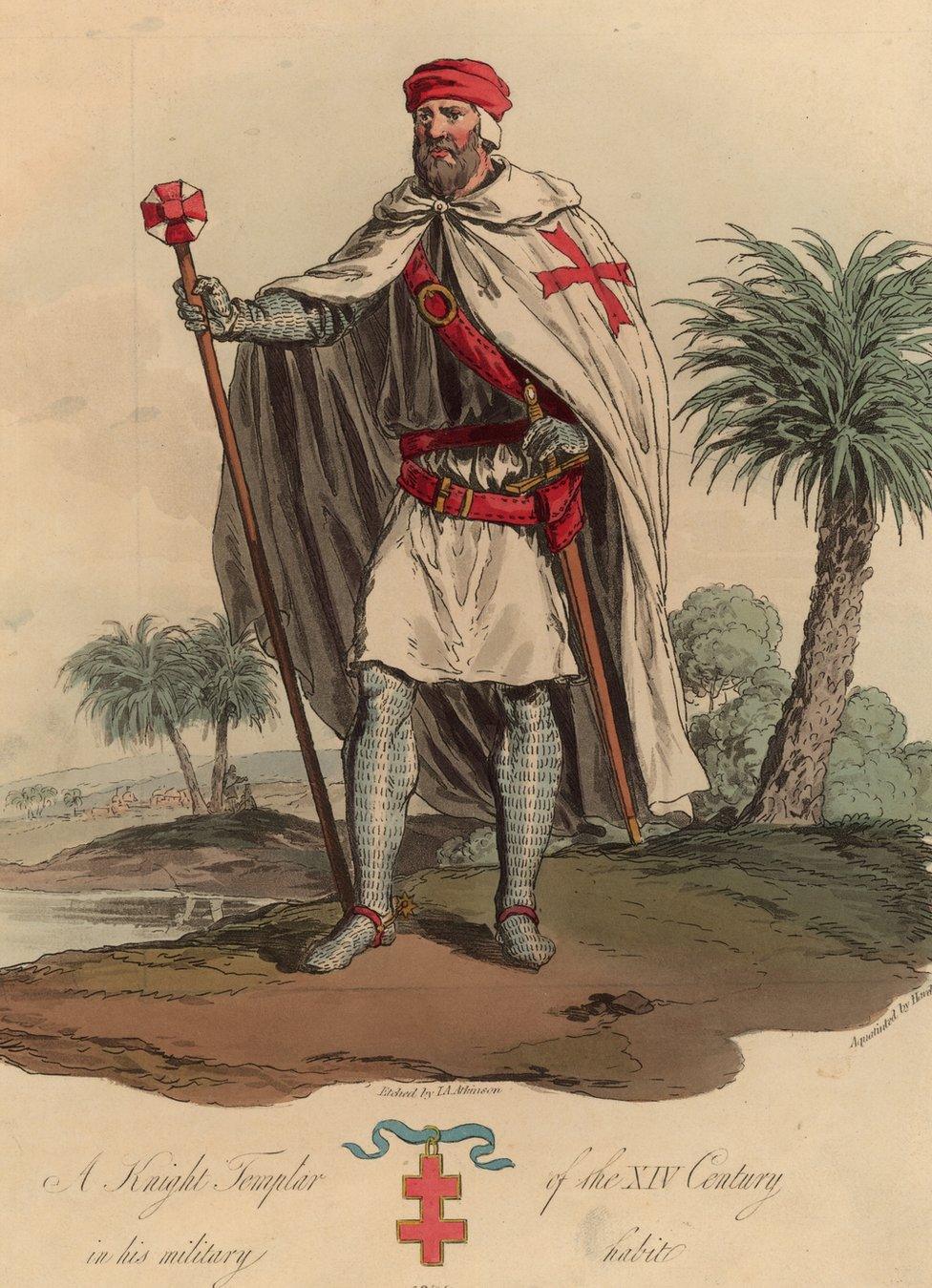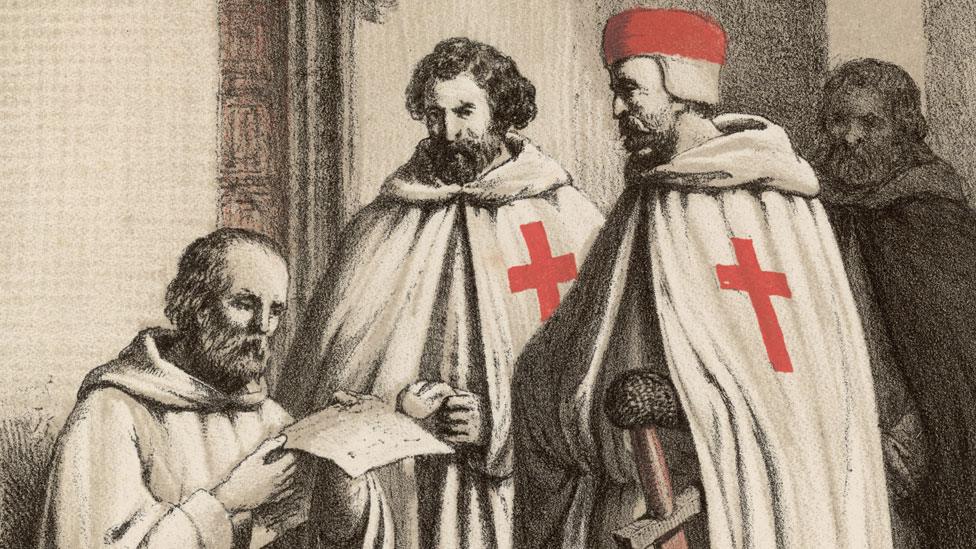Rabbit hole in farmer's field leads to 'mystery caves'
- Published

An apparently ordinary rabbit's hole in a farmer's field leads to an underground sanctuary said to have been used by devotees of a medieval religious order - but is everything what it seems?
According to local legend, the Caynton Caves, near Shifnal, in Shropshire, were used by followers of the Knights Templar in the 17th Century.
Located less than a metre underground, they appear to be untouched structurally.
Their original purpose is shrouded in mystery, but Historic England, external, which describes the caves as a "grotto", believes they were probably built in the late 18th or early 19th Century - hundreds of years after the Templar order was dissolved.

You might also like to read:

In its report, it said the caves appear to be used for "black magic rites" by modern-day visitors.
Michael Scott, from Birmingham, went to photograph the caves after seeing a video of them online.

He said: "I traipsed over a field to find it, but if you didn't know it was there you would just walk right past it. Considering how long it's been there it's in amazing condition, it's like an underground temple."
The tunnel leads to a network of walkways and arches carved out of sandstone, as well as a font.



Mr Scott said the cave was "quite cramped" and those nearing 6ft (1.8m) tall would have to bend down to fit in. Some chambers are so small that those exploring have to enter them on hands and knees.
"I had to crouch down and once I was in it was completely silent. There were a few spiders in there but that was it. It was raining so the slope down was quite sludgy but inside the cave was bone dry," he added.

The caves were reportedly sealed up, external in 2012 in a bid to keep away vandals and practitioners of "black magic".
More surprising places
While the rumoured connection between the caves and medieval knights seems unlikely, who were the Templars?
The Catholic military order was founded in the 12th Century to guard pilgrims on their way along the dangerous roads that led to Jerusalem.
Its members were effectively armed monk-like knights who were granted certain legal privileges and whose status was backed by the Church. They were reputed to be the possessors of great wealth and power.
In 1095, Pope Urban II promised the knights of Europe forgiveness of their sins if they went on a Crusade to win back Jerusalem for Christianity. Many responded by "taking the cross" and showed this act by cutting out red crosses before sewing them into their tunics.

You can find more stunning photography stories on the BBC England Pinterest board, external
- Published30 January 2017
